Living In Singapore: Pros & Cons You Should Know
Singapore is often described as a city that works, and it totally deserves its reputation. This small island nation in Southeast Asia has built one...
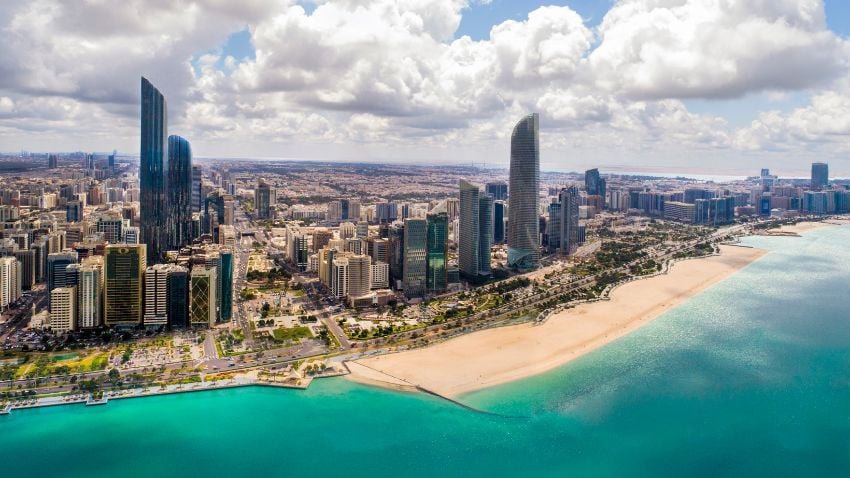
5 min read
The United Arab Emirates (UAE) is a captivating destination that offers a multitude of opportunities for families to create lasting memories. With its dynamic cityscapes, rich culture, and emphasis on education and safety, the UAE has become a preferred choice for parents seeking an enriching lifestyle. In this exploration of the UAE, we will delve into the various reasons why this country captures the hearts of families, from the diverse range of activities and schools to the government's commitment to healthcare and security. The UAE places great importance on safety and security, making it an ideal destination for families.
Before I tell you my experience, let me get you situated a little with the UAE. Abu Dhabi is southwest of the cultural capital Sharjah and the well-known Dubai. Abu Dhabi is the capital of the UAE and has bronze-age historical sites in its oasis city of Al Ain, and the Persian Gulf borders it. The majority of the communities in the UAE and the population are Muslims and practice the lifestyle. The UAE is a treasure trove of experiences for kids and adults alike. From thrilling amusement parks and water parks to desert safaris and indoor entertainment centers, the city offers various exciting activities to cater to every interest. Whether it's exploring wildlife at the Dubai Aquarium, skiing at an indoor ski resort, or enjoying cultural festivals and events, the UAE ensures that there is never a shortage of fun and entertainment for everyone.
You have probably heard me mention before that I lived in the Middle East for eight years, specifically in Abu Dhabi, UAE.
I loved it there. My wife and I had built a beautiful life together in the country. There was amazing food, we had lots of friends, and even our first child was born there.
People always want to know why, after living there for so many years, we finally decided to leave.
The truth is, there were plenty of things…
When we arrived in 2011, the price of oil was about $98 dollars a barrel, so the UAE saw a huge boom in their economy. The country was growing at a rapid pace, and expats were hugely celebrated (literally parades in the streets welcoming us). Everything about life there was amazing for several years.
However, by 2015, we saw the price of oil crash all the way back down to $34 dollars a barrel, and the feeling on the street had changed… the country still needed expats, but “expensive” expats like me, a Canadian (or Americans, Germans, British, etc.) were seen as the problem with outrageous salaries that the companies couldn’t afford. This is just the beginning of the reasons that made me decide to leave the country with my family. Even knowing that moving a family to another city is difficult, imagine moving to another country. Especially when you have kids, everything becomes even more complicated.
All of my friends started being replaced with expats from countries like Eastern Europe, the Philippines, Indonesia, and other countries where they could get cheap employees. It was even common practice to hire 2 or 3 people for one position, which would still be less expensive.
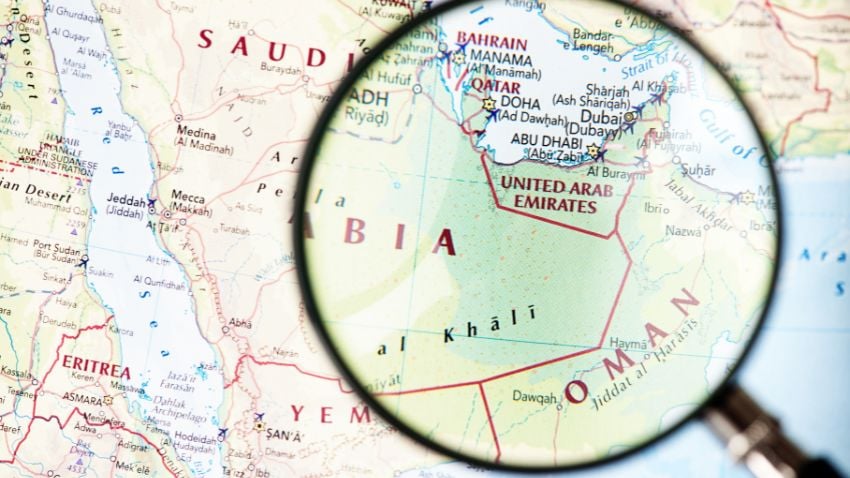
Map of the Middle Eastern countries, including the United Arab Emirates
You see, economies like the UAE are built on $100+ dollar oil, and when it’s not this amount or more, the country crashes. There was even such arrogance surrounding this that some companies would start playing on the futures markets, making bets that oil would always stay at this level. When it didn’t, businesses collapsed, and thousands of people lost their jobs.
During this time, the feeling in the country had changed, and it felt like people would rather spit on you than give you the time of day. It was a dark couple of years.

Offshore oil rig drilling platform in the gulf
I was in a fortunate position during this period as I was a trader working in the options markets and making a nice little income tax-free. Of course, I was also doing the podcast and doing business and offshore consulting.
By the time I left in 2019, the country had rebounded a bit, and oil was over $60 a barrel, so things were levelling out.
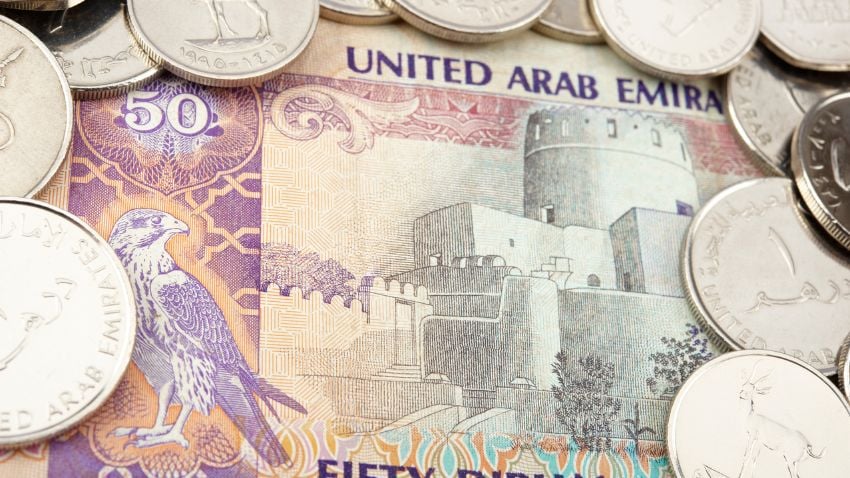
The UAE boasts a robust healthcare system that provides access to high-quality medical services
The ultimate reason to move was that the country was way too dependent on just one thing, in this case, the price of oil. I had seen my friends' expat journeys cut short by something they had no control over, and I wanted to be in a place that respected expats and the valuable skills, expertise and capital we brought to the country.
It also looked like there would be a war with Iran at this time. The US Sixth Armada had been positioned in the Persian Gulf (or the Arabian Gulf, depending on whose map you are looking at), and it looked like the UAE was going to be a staging ground for an invasion. This just wasn't anything of what I wanted for my family as well, so it also became part of my growing desire to find somewhere better for my family and me.
I even had a conversation with a US Senator on a first-class flight from the States to Abu Dhabi about the economic ramifications of using financial markets and currency as a weapon against them.
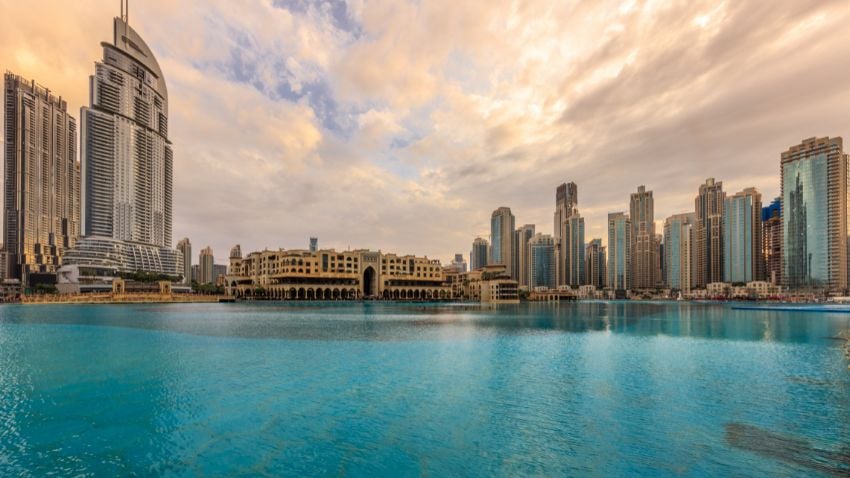
The UAE's multicultural society offers a unique opportunity for families to immerse themselves in diverse cultures and experiences
I wanted to be in a country that continued to offer a tax-free environment but was also food and water-independent, somewhere that was growing and had a bright future ahead of it, but was not dependent only on one source of economic growth.
We also needed a place that had a straightforward residency process, was an English-speaking country or another language that was easy to learn, like Spanish, and was stable, safe, and beautiful.
After a ton of deliberation, my wife and I chose Panama.
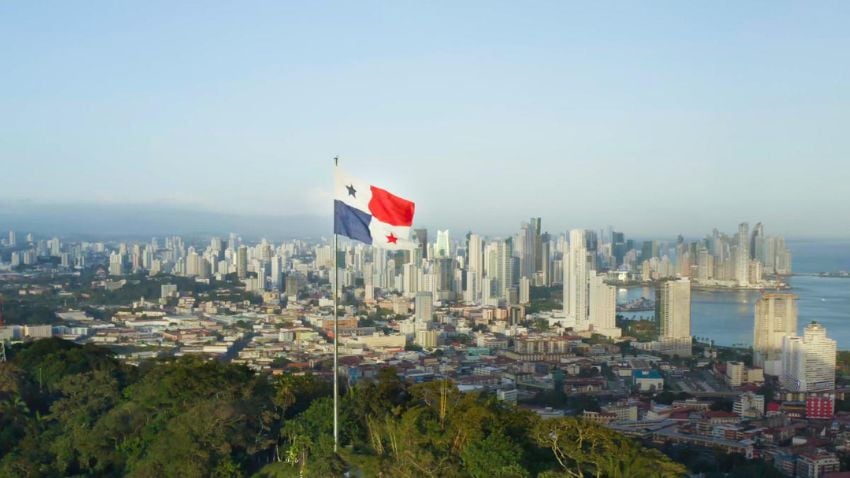
Panama and its flag
It’s been five years since we arrived here in Panama, and I have not regretted my decision once. We have an active social life and have made a huge group of friends. We go out to incredible restaurants a few times a week, there are opportunities everywhere, and we have amazing nature and beautiful beaches a short drive from our place.
Panama's natural wonders will captivate your senses. Picture yourself strolling through lush rainforests teeming with exotic wildlife, listening to the symphony of birdsong overhead. Feel the warmth of the sun on your skin as you relax on pristine white-sand beaches, gazing out at the crystal-clear turquoise waters.
For nature enthusiasts and adventurers, Panama is a paradise. The country's exceptional biodiversity makes it a dream destination for ecotourism. Explore the vast national parks, where a treasure trove of flora and fauna awaits your discovery. Hike through the dense jungles of Soberanía National Park, your senses heightened by the vibrant colours and melodious sounds of nature.
Panama's economic prowess and modern infrastructure contribute to its position as a regional hub. The Panama Canal serves as a vital gateway for international trade, facilitating global connectivity and fostering economic growth. This dynamic environment offers a myriad of opportunities for professionals, entrepreneurs, and investors seeking new horizons.
The allure of Panama extends beyond business. It has become a sought-after retirement destination where retirees can bask in the country's favourable climate, affordable cost of living, and retiree benefits. Whether you choose the cosmopolitan delights of Panama City or the tranquillity of beachfront living, you'll find a place to call home where you can enjoy a comfortable and fulfilling lifestyle.
There are several ways to live in Panama, and you can certainly meet the requirements of some of the visas that exist. In this video below, I will explain how to get the Panama Friendly Nations Visa.
The world remains large, so sometimes it’s difficult to pick a destination to move in together. That's why we created the free special report, Plan-B Residencies and Instant Citizenships. Inside, you will find the practical information necessary to choose somewhere you can start a new life while enjoying all the perks you can imagine (lower taxes, affordable cost of living, increased travel freedom, etc.). Download it now before it’s too late…
If you want the best intel from the expat world, including profitable offshore opportunities, little-known tax-saving strategies, and hard-won insights on immigration, passports, and Plan-B residencies, all delivered to your inbox every single week, then join our daily correspondence, EMS Pulse®. Currently enjoyed by over 84,000 expats and expat-hopefuls worldwide. Fill in the form below to join our newsletter free:

Written by Mikkel Thorup
Mikkel Thorup is the world’s most sought-after expat consultant. He focuses on helping high-net-worth private clients to legally mitigate tax liabilities, obtain a second residency and citizenship, and assemble a portfolio of foreign investments including international real estate, timber plantations, agricultural land and other hard-money tangible assets. Mikkel is the Founder and CEO at Expat Money®, a private consulting firm started in 2017. He hosts the popular weekly podcast, the Expat Money Show, and wrote the definitive #1-Best Selling book Expat Secrets - How To Pay Zero Taxes, Live Overseas And Make Giant Piles Of Money, and his second book: Expats Guide On Moving To Mexico.
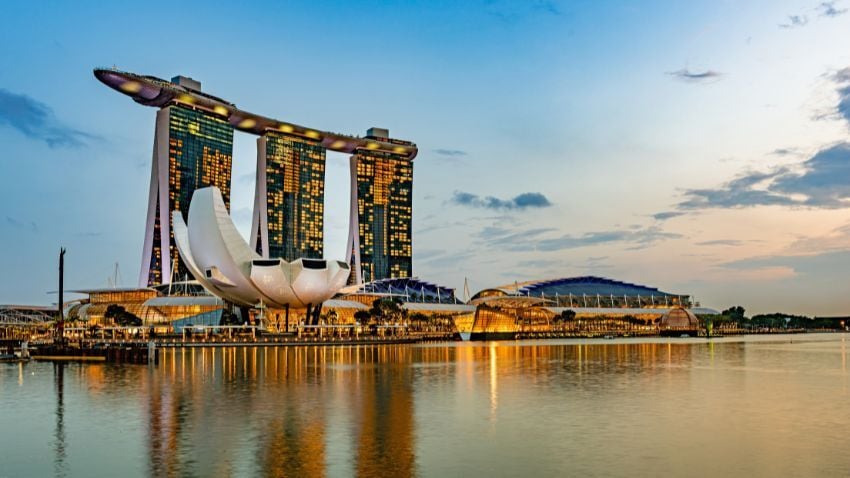
Singapore is often described as a city that works, and it totally deserves its reputation. This small island nation in Southeast Asia has built one...

Panama’s geographic size is modest, but its global relevance is not. The country connects two oceans and two continents, operates on a dollarized...

Honduras’ newly elected president, Nasry Asfura of the conservative National Party, was sworn in on January 27, 2026. The election, held on November...